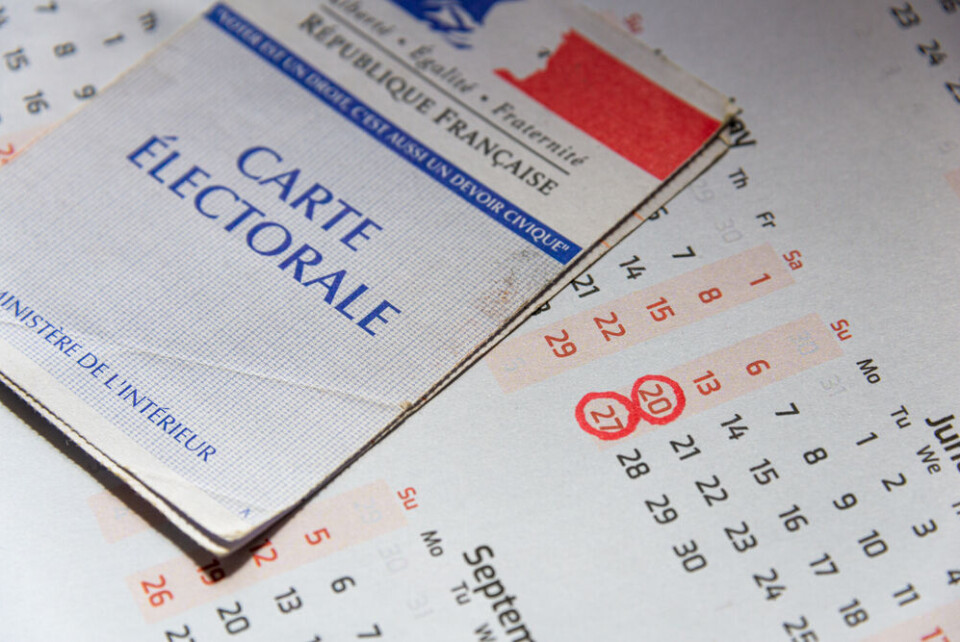-
Transavia to replace Air France for Nice-Orly flights
Up to eight return journeys a day to be offered by the budget carrier
-
Is this the end of free mountain rescue in France?
A new report says that charging for services is ‘legitimate and necessary’
-
How France’s new food strategy aims to change the national diet
The plan outlines new goals for meat consumption
France regional election: Centre-right surprise success in first-round
Far right only wins in one region and 66.1% of voters abstain, prompting suggestions that reform is needed in French politics

The results are in from the first round of France’s regional elections, with centre-right party Les Républicains winning almost a third of the vote.
The other major winner was the centre-left Parti Socialiste, which picked up a large number of votes in west France.
The far-right Rassemblement National only just secured a single victory in Provence-Alpes-Côte-d’Azur, after being tipped to win in multiple regions.
President Macron’s La Republique En Marche! won just 10% of the vote nationally.
The winners of the first round in each region
Auvergne Rhône-Alpes: Laurent Wauquiez (Les Républicains-L'Union des démocrates et indépendants)
Brittany: Loïg Chesnais-Girard (Parti Socialiste-Parti communiste français)
Bourgogne Franche-Comté: Marie-Guite Dufay (Parti Socialiste-Parti communiste français-Parti radical de gauche)
Centre Val de Loire: François Bonneau (Parti Socialiste-Parti communiste français-Parti radical de gauche)
Corse: Gilles Simeoni (Régionalistes)
Grand Est: Jean Rottner (Les Républicains)
Hauts-de-France: Xavier Bertrand (Les Républicains)
Ile-de-France: Valérie Pécresse (Libres-Les Républicains-L'Union des démocrates et indépendants)
Normandy: Hervé Morin (Les Républicains-L'Union des démocrates et indépendants-Mouvement Démocrate)
Nouvelle-Aquitaine: Alain Rousset (Parti Socialiste/Parti communiste français)
Occitanie: Carole Delga (Parti Socialiste/Parti communiste français)
Pays de la Loire: Christelle Morançais (Les Républicains)
Provence-Alpes-Côte d'Azur: Thierry Mariani (Rassemblement National)
The second and decisive round of voting will take place next Sunday June 27.
Health crisis discourages voters
One of the most notable points of the election was the high number of voters who abstained.
A national poll* showed that 66.1% of eligible voters did not vote.
This is up from 39.16% abstention in the first round of regional elections in 2004, 53.67% in 2010, and 50.09% in 2015.
Government spokesperson Gabriel Attal said the low turnout was “in part linked to the health situation” making people hesitant to cast their vote and possibly expose themselves to the virus.
Professor Martial Foucault, director of political research at Sciences Po, told FranceInfo that health restrictions also impacted the run up to Sunday’s vote.
“This election has been invisible,” he said. “The candidates were only allowed to start campaigning through public gatherings from June 9, which is a very short length of time.”
The candidate for La France Insoumise in Bobigny, Florent Lacaille-Albiges, agreed: “With all the health measures, we’re in a situation where the debate has withered.”
Disorganisation at voting centres
Those who did go out to cast their vote may also have been discouraged by disorganisation in voting centres.
In Marseille, voting opened late due to lack of staff with some venues not fully operational until 12:30.
In Cousolre (Nord), voting opened but with one of the candidate lists absent from the ticket.
And in the run up to the election many information packs about candidates, which are meant to be sent to all eligible voters, were not distributed.
Interior Minister Gérald Darmanin blamed this on the private firm Adrexo, which was supposed to post the packs in seven regions, accounting for 22 million voters.
Mr Darmanin said that the firm had “particularly poorly distributed electoral materials” after flyers were found dumped in nature and rubbish bins or kept in storage days before the election.
General trend away from political engagement
Local elections regularly have less of a turnout than presidential elections, but this could also have been exacerbated by a growing feeling of disengagement from politics.
The same national poll* suggested that 39% of voters believed that regional elections “wouldn’t change anything in their lives”.
A further 23% wanted to use the election to show “dissatisfaction with politicians in general”.
And 22% did not like “any of the lists or candidates” up for election.
Professor Foucault believes this disengagement may indicate a profound change to the French system is needed.
He said: “The events with the gilets jaunes movement, followed by the national debates showed that we are finished with this cycle of electoral democracy with a model where the electorate can only express themselves by voting.
“This model is no longer enough to keep democracy alive.”
*Poll by Ipsos/Sopra Steria for France Télévisions
Related stories
France regional elections this weekend: What powers do regions have?
























